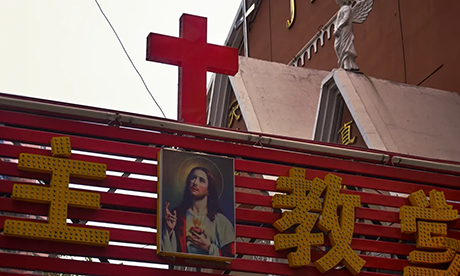As Pope Francis concludes his 12-day tour of Southeast Asia, theologian and anthropologist Michel Chambon, based in Singapore, analysed the significance of this trip for the future of Sino-Vatican relations.
How has China followed Pope Francis’ Asian tour, and what interests has it seen in it?
Michel Chambon: Beijing has closely observed the entirety of this trip, seeking to assess to what extent Pope Francis could contribute to the balance of power, the common good, and the development of the region—and to what extent, therefore, this “universal sovereign” could be an interesting partner for China.
On Chinese social media, Pope Francis’ gestures and speeches have been shared in real-time, under the watchful eye of the Communist Party, which allowed this information to circulate.
Like other Asian leaders, China has also seen political interests behind this tour as it expands its influence throughout Southeast Asia and seeks to secure a share of the region’s vast natural resources (forestry, minerals, etc.).
Recently, Beijing took a major step by forming a military alliance with the Solomon Islands, east of Papua New Guinea, which has caused significant tensions with Australia and the Western world.
Chinese diasporas have also long been present in various Southeast Asian countries (such as Indonesia), which China seeks to make part of its sphere of influence.
For Beijing, there were therefore several significant geopolitical and economic stakes.
What message has the Pope sought to send to the Chinese authorities?
M.C.: By visiting these Asian countries, the Pope has shown that he is fully committed to the unity of peoples and the integrated development of the region. With his “soft power,” he helps all parties return to fundamental issues of stability, dignity, justice, and peace.
The Holy See has demonstrated, through extensive communication, what kind of universal sovereignty Francis wants to exercise in Asia in the service of the common good.
The Pope has also shown great delicacy and adaptability toward his various interlocutors: one can see this as a signal to Beijing, indicating that he can also be its partner.
What impact could this trip have on the renewal of the China-Vatican agreement, which is set to expire at the end of October?
M.C.: In my opinion, it is highly likely that the agreement will not only be renewed but that a new version will be developed in the coming weeks.
The international context—the Pope’s trip to Asia, the Synod on Synodality, U.S. elections—seems favorable: the Holy See and Beijing are free to renegotiate this agreement in peace.
This will likely be done quietly. Chinese authorities also seem eager to move forward. At the end of August, the Holy See announced that Beijing had recognised an “underground” bishop (1) in the northeastern part of the country.
Both parties are reminding the world that the agreement exists and is working, even though Beijing still maintains tight control over civil society, including Catholics.
In early August, Pope Francis once again expressed his desire to visit China. Do you think such a trip could really happen for him?
M.C.: I strongly doubt that this will ever concretely happen. Francis is 87 years old, and China is not ready. For me, these somewhat provocative statements are more of a form of “gunboat diplomacy.”
By publicly envisioning such a trip, Francis is once again demonstrating his desire to build a relationship of collaboration and trust with Beijing despite all obstacles.
(1) Previously recognised by Rome, but not by Beijing.
- First published in La Croix
- Michel Chambon is a theologian and cultural anthropologist. He is Research fellow at the National University of Singapore.
News category: Analysis and Comment.




